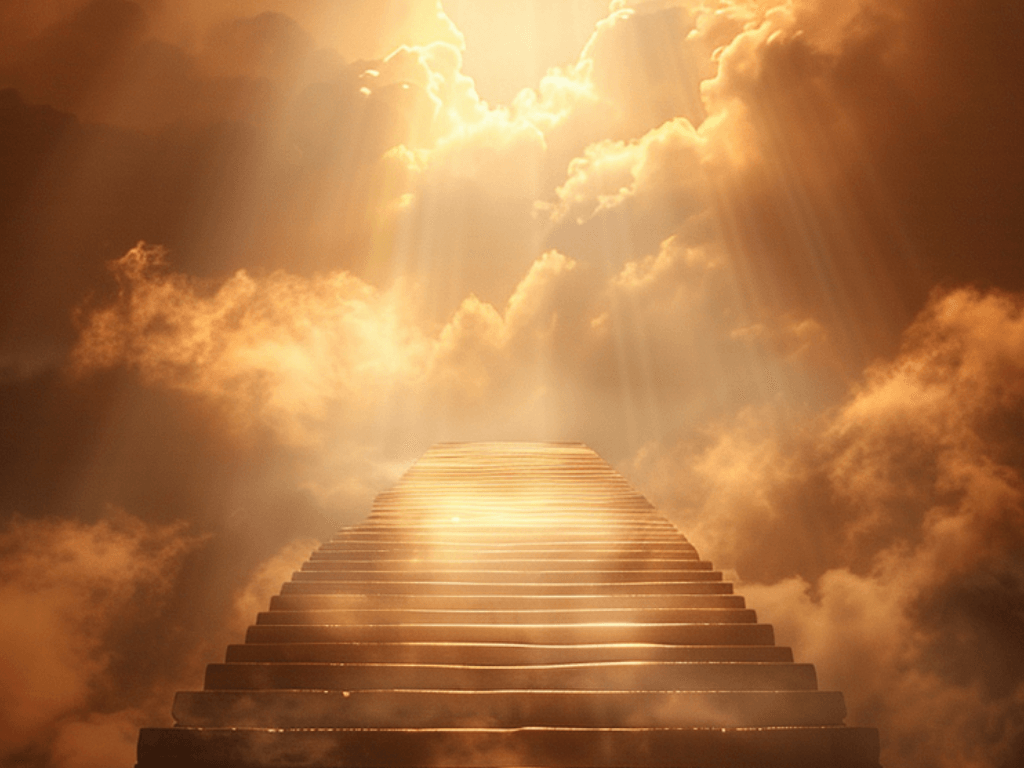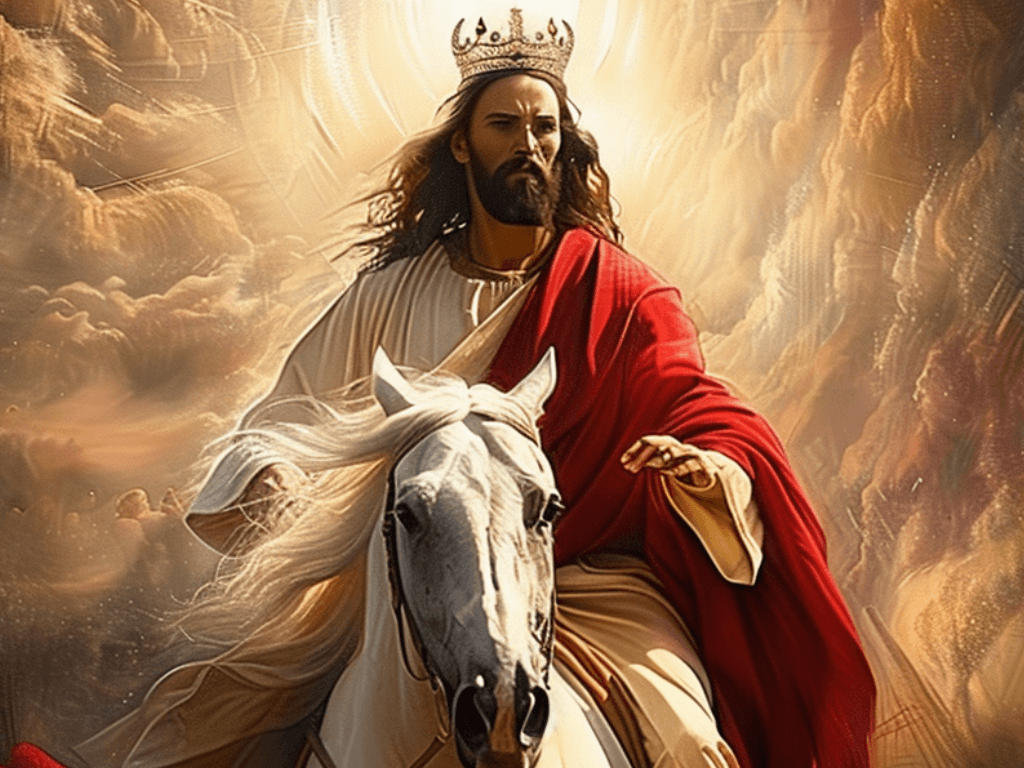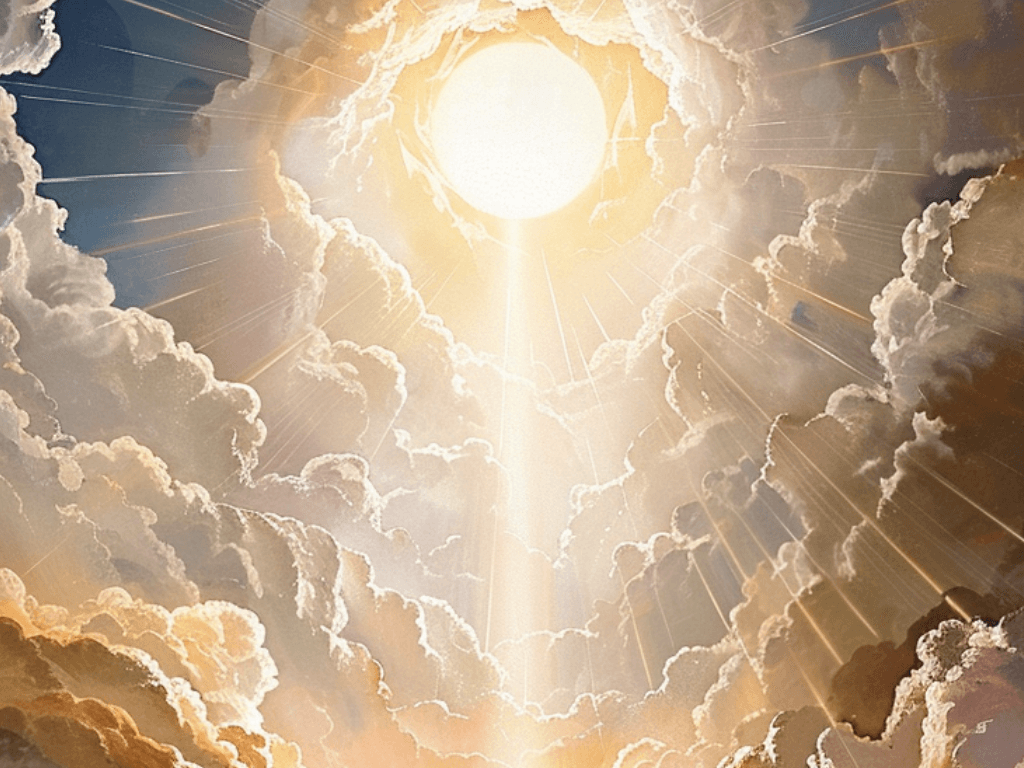What is the Bible About? Biblical Theology in Revelation
Is life hopeless?
In part one of “What is the Bible about? We left Adam and Eve in a rather hopeless situation. We saw that as God drove them out of the Garden of Eden, though everything did appear hopeless, God gave Adam and Eve a glimpse of His unfolding plan of redemption.

Adam and Eve would now, by faith, not only trust God for everything they needed to sustain their lives, but they would also need to trust Him to redeem their lives.
There are two ways that man responds negatively to their new for redemption.
- The first way a man responds is to reject their need for Christ and continue in sin, disregarding the consequences. Romans 1:18-25, 3:10-20, 23, 6:23 1 Corinthians 1:18-25
- The second way is through man’s self-effort through works of righteousness.
The highest point of our Mount Everest is the point where we realize that there is no answer within ourselves to answer the problem of sin. Just like Adam and Eve, we have been driven away from the presence of God and now find ourselves alone and without hope.
Our human nature doesn’t desire to find a way back to God, so we climb “Mount Everest,” hoping that we will find the answer to sin within ourselves and our ability to do good works. We often look down from the climb, terrified we won’t make it, for the pressure to be “good enough” is crushing.
We are thirsty, and our fingers feel numb as we grip for dear life. We are worried that at any point, a small, seamlessly insignificant rock could give way, and we would be goners.
Doesn’t this sound like how we live and understand the Christian life struggle? Exhausting, we claw our way through life; everything feels unsteady, ready to collapse at a moment’s notice. We think we are on the right track until the last second: deception. You don’t see it until it’s too late.
Trying to earn our own goodness confirms we have missed the point of what it means to be a sinner.
We must remind ourselves of who we were the moment we desire to scale the side of Mount Everest. There is no hiking gear, hiking shoes, or support; there isn’t even a mountain! Our Mount Everest doesn’t exist! What!? Yes, you heard me. There is no mountain because you are dead!
In the book of Ephesians, Apostle Paul clearly explains what it means to be “dead.”
Ephesians 2:1-3
“1 And you were dead in the trespasses and sins 2 in which you once walked, following the course of this world, following the prince of the power of the air, the spirit that is now at work in the sons of disobedience- 3 among whom we all once lived in the passions of our flesh, carrying out the desires of the body and the mind, and were by nature children of wrath, like the rest of mankind.”
Understanding who we were in the first place stops striving. What can a dead man do? Nothing! A dead man can only lie there and stay dead! Understanding we are desperate and without hope is where “Mount Everest” disappears, and we can begin to see the glory of God in the face of Jesus Christ (2 Corinthians 4:6).
Paul continues in Ephesians;
Ephesians 2:4-10
4 But God, being rich in mercy, because of the great love with which he loved us, 5 even when we were dead in our trespasses, made us alive together with Christ by grace you have been saved 6 and raised us up with him and seated us with him in the heavenly places in Christ Jesus, 7 so that in the coming ages he might show the immeasurable riches of his grace in kindness toward us in Christ Jesus. 8 For by grace you have been saved through faith. And this is not your own doing; it is the gift of God, 9 not a result of works, so that no one may boast. 10 For we are his workmanship, created in Christ Jesus for good works, which God prepared beforehand, that we should walk in them.”
The second place striving stops when we remember “But God.” God regenerates our hearts and brings us back to life. He also gives us a new spirit and a new life in Him.
God made Adam and Eve desire Him, to rely on Him for everything they needed to live in perfect fellowship. When they chose to believe in Satan, they forfeited that life and exchanged it for death, both physical and spiritual.
Adam and Eve, taking fig leaves, tried to cover their shame; they tried to climb their imaginary mountain back to God; however, like us, they were dead. “But God” was their answer.
Genesis 3:21
And the LORD God made for Adam and his wife garments of skins and clothed them.”
In Chapter 3 of Genesis, verse 21, God gives them a picture of the final offspring, Jesus, mentioned specifically in verse 15. God then provided a blood sacrifice that would foreshadow Jesus’s work on the cross. Through this act, God provided hope to all humanity and promised that one day, sin would be dealt with permanently.

Let’s jump to the end of God’s plan in Revelation to see how God accomplished this promise. We will begin in Revelation 5, where we see the Lamb of God, who was slain, worthy of all rule and worship, who restored our fellowship with God, and who is coming back again!
Have trouble finding your way around the Bible? Join me for a 90-minute coaching session, during which I will walk you through four important steps to Bible Study. The workbook and Study notes are included. Click the image below to get started.
Revelation 5
In chapter 5 of Revelation, we see a scene unfolding in God’s throne room. Those seated around the throne are distressed; they long to see God’s glory revealed through the gathering of His saints and the judgment of His enemies, but they don’t see anyone worthy to open the scroll, the title deed of the earth.
If you aren’t familiar, a deed is a document that holds the name of the legal owner of a property, who holds all rights and privileges of an owner.
In Colossians 1:15-18, we read;
“15 He is the image of the invisible God, the firstborn of all creation. 16 For by him all things were created, in heaven and on earth, visible and invisible, whether thrones or dominions or rulers or authorities-all things were created through him and for him. 17 And he is before all things, and in him all things hold together. 18 And he is the head of the body, the church. He is the beginning, the firstborn from the dead, that in everything he might be preeminent.”
Jesus is the Creator of all things, and He rules over all things.
When Paul, in verse 18 of Colossians 1, says that “He is the beginning the firstborn from the dead,” He is not referring to Jesus as being the first created being; instead, he is referring to Jesus as the first fruits (after His resurrection) of the those who have fallen asleep. 1 Corinthians 15:20&21. Just as Jesus rose, we will also rise to new life through our glorification.
Looking back to Genesis 1:28, we see God gave Adam and Eve specific instructions. They were to be fruitful, multiply, and fill the earth. This blessing was not just the blessing of children but the command to subdue and have dominion (rule over creation as God’s representatives). God’s blessing of fruitfulness came with the responsibility to spread God’s glory throughout the earth.
Jesus’s resurrection was God’s sign to mankind that His sacrifice was satisfying to appease the wrath of God and all-sufficient to pay the penalty for sin Romans 5:8&9, 1 John 2:2, 2 Corinthians 5:21, 1 Thessalonians 1:10. Jesus’s resurrection also demonstrates the hope we have as believers that we to will rise again when the Lord Jesus returns in glory. 1 Corinthians 15:22&23
When Adam and Eve sinned against God, they not only died both physically and spiritually, but they also failed to obey God’s command to subdue and have dominion.
In Luke 19:10, Jesus tells us that He came to save what was lost, and in Matthew 3:15, Jesus stated that He came to fulfill all righteousness. The Apostle Paul sums up Jesus’s accomplishment in redemption like this:
Romans 5:17
For if, because of one man’s trespass, death reigned through that one man, much more will those who receive the abundance of grace and the free gift of righteousness reign in life through the one man Jesus Christ.
When Adam and Eve fell into sin, their ability to rule righteously and perfectly was lost. Through His righteous life, Christ perfectly fulfilled God’s original plan for man. This is why Christ is preeminent (has the right to rule).

Revelation 7:9-12,19:1-5
Chapter 7 shows us the second-way paradise is won in God’s plan. Jesus is worthy of not only ruling but also worship.
In this scene, Jesus is on His throne, with all the saints who have believed in Him. Christ was the sin offering, the payment, in our place satisfying the wrath of God. 1 John 2.2. The blood of Christ has bought you, and as a result, God has exalted Him and given Him the name Lord, the one worthy of all worship. Philippians 2:9-11
The Holy Spirit regenerates the heart of one who has believed in the Lord Jesus Christ. A regenerated heart desires to worship the worthy One.
Revelation 19:6-9
The third way we see paradise won in God’s plan is by the gathering of the saints at the marriage supper of the Lamb. This scene reflects the celebration of all the saints throughout redemptive history. The saints include those who have died, those raptured, and those saved during the tribulation.
Revelation 21:1-5a
In Jesus’s first coming, we saw the conquering of sin and death and the establishment of His right to rule. Sin and death were defeated and we were restored to relationship, fellowship, and worship with God.
We now turn to the point in God’s plan where we see the restoration of heaven and the earth, where the saints of God will live under the perfect rule of their King.
In chapter 3:10 of his second letter, the Apostle Peter gives us a picture of God’s destruction of the present heavens and earth. He says;
2 Peter 3:10
“But the day of the Lord will come like a thief, and then the heavens will pass away with a roar, and the heavenly bodies will be burned up and dissolved, and the earth and the works that are done on it will be exposed.”
Peter doesn’t end with destruction; he continues in verse 13;
2 Peter 3:13
“But according to his promise we are waiting for new heavens and a new earth in which righteousness dwells.”
There it is again, “But.” This time, our “But God” takes us from our current state, living in a sin-stained world, to a world where righteousness dwells.
This supper is the personal heavenly renewal of our fellowship with God restored at the cross. First, we were saved. Second, we will be joined to Christ as bride betrothed to her husband. Third, we will be united to our bridegroom in heaven. Together with all the saints, we will worship the King in perfect fellowship as one fully glorified Bride!
God will bring down from heaven a new earth where we will dwell in perfect fellowship. There will be no tears, no pain, that part of this earth will pass away, and all unrighteousness.

Revelation 22:12-15
Why can we have this hope of a new heaven and new earth?
Revelation 12:12-15
12 “Behold, I am coming soon, bringing my recompense with me, to repay each one for what he has done. 13 I am the Alpha and the Omega, the first and the last, the beginning and the end.” “14 Blessed are those who wash their robes, so that they may have the right to the tree of life and that they may enter the city by the gates.”
Jesus has promised to return, and this is our ultimate hope.
He will bring down a new earth from heaven and repay all that is due (that is just) to each person. To those in Christ, mercy has been given. For those who have rejected Christ, justice is in the form of eternal death, separation from God, and eternal punishment in hell.
Refusing to repent and receive salvation through Christ results in the removal of God’s grace and the giving over to the passions of our flesh that are in opposition to God Romans 1:18-25.
Those who are His will prepare themselves by living a life set apart for Him in holiness.
Hebrews 12:14 speaks about “a holiness that is required to see the Lord.” God enables, motivates, and preserves this holiness in us so that we might be set apart holy unto Him.
The Lord Jesus is coming back; this day will be the consummation of all of human history, restored to perfection to carry out the purpose it was created, to the praise of His glory.
In conclusion, let’s connect Genesis and Revelation. The universe, including Adam and Eve, was created to reflect God perfectly.
Sign up below to get your FREE Bible Study Jump-Start
God created Adam and Eve in His image to reflect His glory and gave them the command and authority to rule and care for the world as His representatives, Genesis 1:28.
God instructed Adam and Eve to walk in perfect fellowship, offering their bodies as a living sacrifice to God, which was their spiritual act of worship Genesis 1:28, 2:16&17, Romans 12:1&2.
Through their rebellion against God, Genesis 3:8-13, Adam and Eve forfeited God’s perfect purpose for them by rejecting His perfect character and refusing His authority. As a result, they became lawbreakers, and the totality of the person was corrupted by sin, leading the whole of humanity into sin.
God, in His mercy, promised that from Eve’s offspring, One would come forth who would fully and finally deal with the problem of sin and its consequences. Revelation is where we see the consummation of that promise.
Through obedience, Jesus paid the price that our sin deserved and restored the way for sinful man to have fellowship with God. He fulfilled the responsibilities of Adam and Eve to represent God perfectly and is now preeminent.
Jesus’s work also restored man’s ability to come to God in worship, establishing Himself as the one worthy of worship.
We can trust in God’s promise to restore the heavens and earth because Jesus is coming back.
Our hope can never be anchored to this world because this world is passing away. The Fall plunged this world into eternal death; everything we see in our current world is wasting away; however, God is unchanging.
God tells us in Hebrews 6:13-15, 18-20 that His promise in Genesis 3:15, given first to Adam and Eve, extended to Abraham and was sworn by an oath where God swore by Himself to keep His promise.
Hebrews 6:13-15, 18-20
13 For when God made a promise to Abraham, since he had no one greater by whom to swear, he swore by himself, 14 saying, “Surely I will bless you and multiply you.” 15 And thus Abraham, having patiently waited, obtained the promise…17 So when God desired to show more convincingly to the heirs of the promise the unchangeable character of his purpose, he guaranteed it with an oath, 18 so that by two unchangeable things, in which it is impossible for God to lie, we who have fled for refuge might have strong encouragement to hold fast to the hope set before us. 19 We have this as a sure and steadfast anchor of the soul, a hope that enters into the inner place behind the curtain, 20 where Jesus has gone as a forerunner on our behalf, having become a high priest forever after the order of Melchizedek.
Jesus is who we hope in: His sacrifice, His righteousness, His resurrection, and His return.
Resources I recommend on Understanding the Plan of God in Redemption
A Biblical-Theological Introduction to the New Testament: The Gospel Realized
How to Understand and Apply the New Testament: Twelve Steps from Exegesis to Theology



